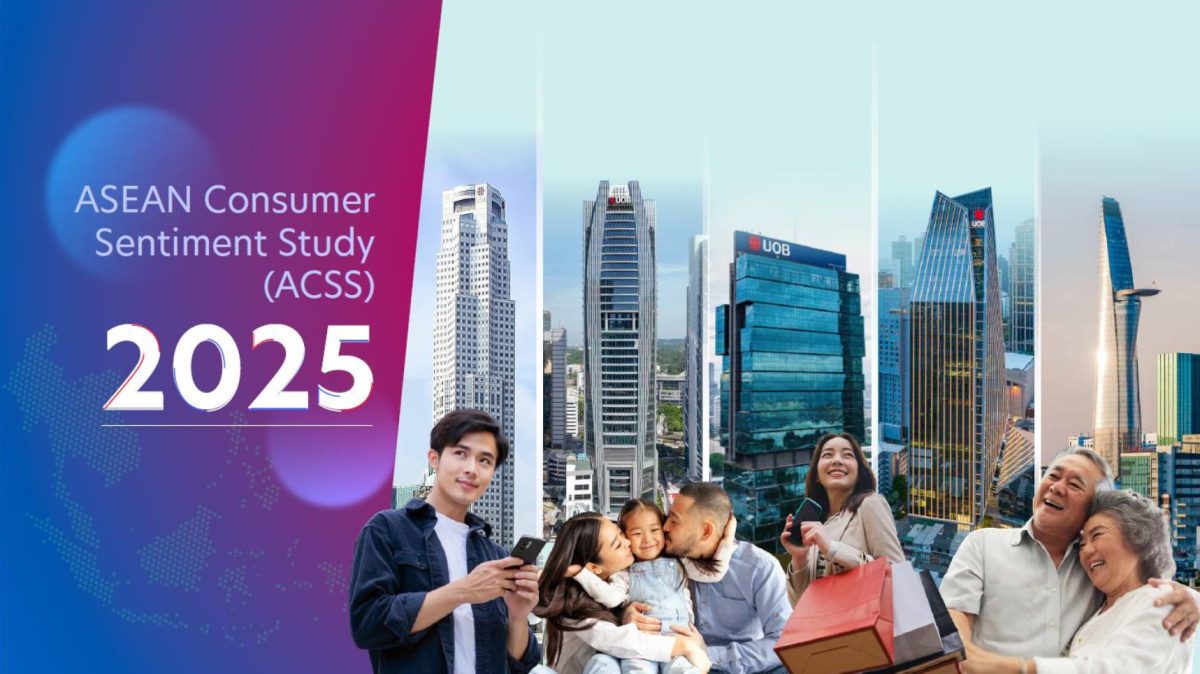39 per cent of Thai consumers are showing optimism about future economic environment, a 4 percentage point improvement from last year, while keeping a close eye on their finances, according to UOB’s ASEAN Consumer Sentiment Study (ACSS) 2025 conducted in collaboration with Boston Consulting Group (BCG). The findings reveal that health, education, and personal well-being are emerging as key priorities, reflecting a lifestyle shift towards long-term resilience and mindful consumption.

Mr Yuttachai Teyarachakul, Managing Director, Head of Personal Financial Services, UOB Thailand, said the study highlights how Thai consumers are navigating a delicate balance between optimism and financial prudence. He said, “We are seeing a shift towards spending on self-improvement and wellness, reflecting a growing desire to enjoy life today while being prepared for tomorrow.”
Mr John Wagner, Managing Director and Partner at BCG Thailand, said, “While optimism about Thailand’s economic outlook has improved slightly, consumer confidence remains subdued. Expectedly, Thais are getting concerned about rising living costs, but resilient as ever, they are adjusting their shopping habits around it. This, in turn, presents opportunities for businesses to adapt and capture new sources of growth, and new risks for consumers and policy makers to navigate.”
Education and wellness leading to new spending priorities
Beyond daily living expenses, 44 per cent of Thai respondents from the study report increased spending on education, health, and wellness. The trend reflects growing awareness of longevity and quality of life, with half of the Thai respondents expecting to retire after 60. Required savings for a comfortable retirement vary significantly across segments: mass consumers[1] anticipate a median of THB 3.9 million, while affluent consumers[2] expect THB 10.5 million.
UOB Thailand recommends structured planning to sustain standards of living: preventive health budgeting, diversified investments, and insurance protection for unexpected expenses.
Social media fuels engagement, not instant sales.
The ACSS 2025 study also found that 45 per cent of Thai consumers shop more via social media platforms over the past 12 months, but 47 per cent take longer to make purchases. Many join live-streams for entertainment, comparing products and delaying decisions. While this reduces instant conversion, it strengthens brand engagement and awareness.
To help consumers make better spending decisions, UOB integrates AI-driven smart Insights into its UOB TMRW app. These features track spending patterns, provide predictive alerts, and guide users toward sustainable financial habits, helping them balance mindful consumption with financial resilience.
Growing financial confidence alongside evolving saving habits
87 per cent of Thai respondents say they are confident managing their personal finances, and seven in 10 (74%) save more than 10 per cent of their income. Among the affluent, this figure rises to 88 per cent. UOB Thailand’s data further supports this trend, showing a 21 per cent growth in deposit balances among affluent customers. Meanwhile, Gen Z customers are driving momentum with a 48 per cent increase in new account openings, reflecting strong engagement from younger consumers.
However, saving discipline remains a challenge. 85 per cent of affluent consumers prefer to enjoy life now while 76 per cent of Gen Y and 82 per cent of Gen Z cite pressure of social and peer influence as a barrier to consistent saving.
Mr Yuttachai added, “Young Thais are digitally savvy and open to learning about financial planning and management, but many still face structural challenges such as gaps in financial literacy, attitude towards spending and income instability. These barriers make it harder for them to translate knowledge into action and achieve long-term financial security. Our goal is to bridge these gaps by providing tools and insights that empower them to pursue the lifestyles they aspire to without compromising their financial resilience.”
